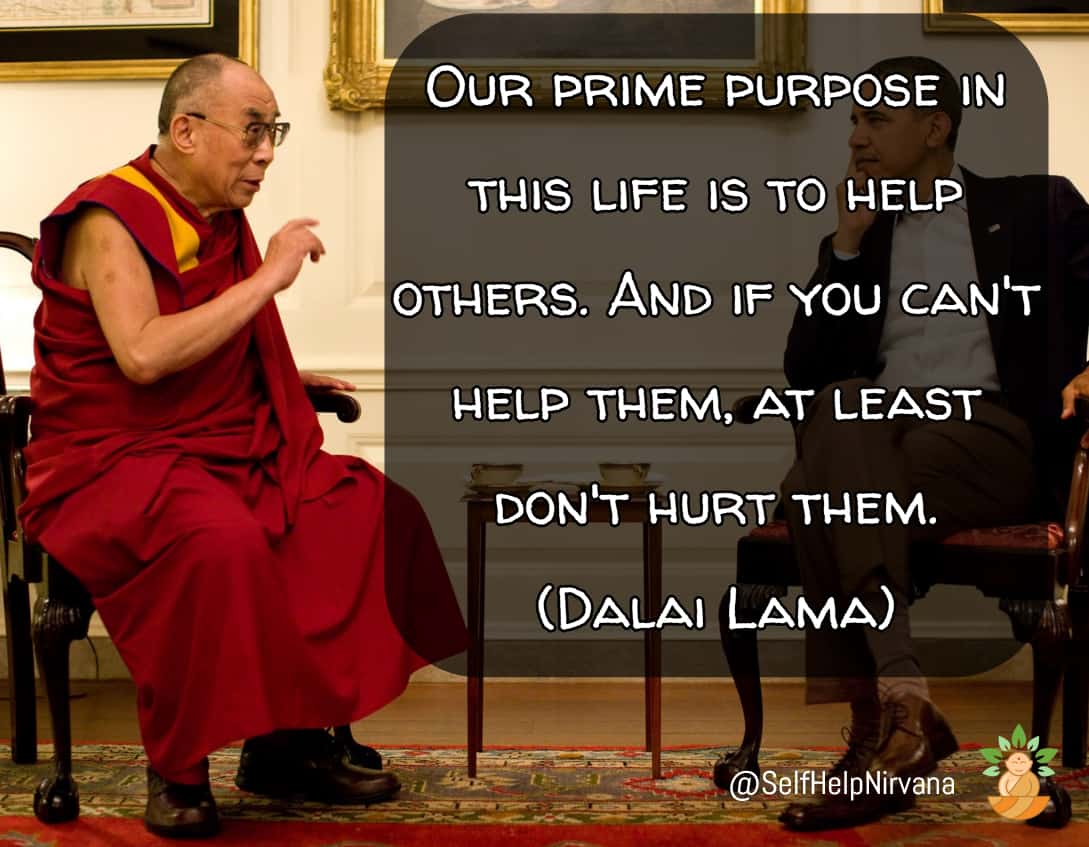Misconceptions About Karma And What It Really Is
Karma may not mean what you think it does, because the Western perception of what it means is incorrect.
This article therefore looks at what karma is, as well as what it is not.
A Brief Background To Karma
It is believed that the concept of karma arises from the teachings of Gautama Buddha, who lived, approximately, between 480 and 400 BCE.
What we now know as Buddhism arose from this meditator, mendicant, philosopher, religious leader, and spiritual teacher, although karma is also a concept in Hinduism, Jainism, Shintoism, and Taoism, amongst other philosophies.
What Karma Isn’t
One of the most common mistakes is to use karma as a synonym for words such as fate and destiny (or anything that suggests a form of predetermination of your life by any higher power, whether that’s a God or “the universe”).
This is the result of people assuming that karma and kismet are synonymous – but only the word “kismet” is related to fate and destiny.
But because many do think karma is all about fate, they tend to use the term “everything happens for a reason”, for which there is no real evidence, and which I have never believed in.
Following on from that, people therefore think that your karma is something that cannot change – which is not the case at all.
And there are real-world implications of this misconception.
For example, some people, as a result of their incorrect beliefs about what karma is, think that you should not help people in need because “it is their karma to suffer”.
Another common error is to believe that karma is some sort of cosmic retribution system that keeps everything in balance – in other words, for every good deed somebody does, something bad must happen to them to keep everything even.
It is not this at all, and you should bear in mind that many of the eastern philosophies and religions do not share the Christian concept of an all-knowing, judging god.
So What Is Karma?
The word “karma” comes from Sanskrit and means “action” or “deed”, and that gives us the most important clue about what karma is all about.
It is, essentially, the law of cause and effect – whatever you do intentionally now will affect you later, maybe immediately, or maybe years from now.
The word “intentionally” is also crucial here.
For example, let’s say you squash an insect while walking.
If you did that by accident (e.g. because you didn’t see it), then this does not affect your karma, because it was not intentional.
However, if you did see the insect and chose to step on it, then that was intentional and so it will affect your karma.
The concept is not unique to eastern philosophies either – Galatians 6:7, written centuries later, says “A man reaps what he sows.”, while Newton’s Third Law Of Motion states that for every action there is an equal and opposite reaction, although it could be argued that this is not exactly the same as karma, even though the basic idea may be similar.
And then, of course, there is the common saying, “What goes around comes around.”
So, if you’re looking for a short and simple definition of what karma is, I can do no better than offer this, by Zen Buddhist expert Barbara O’Brien:
“In Buddhism, karma is an energy created by willful action, through thoughts, words and deeds. We are all creating karma every minute, and the karma we create affects us every minute. It’s common to think of “my karma” as something you did in your last life that seals your fate in this life, but this is not Buddhist understanding. Karma is an action, not a result. The future is not set in stone. You can change the course of your life right now by changing your volitional (intentional) acts and self-destructive patterns.”
And as for any retribution, while there may be external aspects to this (e.g. being sent to prison for killing somebody), in terms of karma, it’s all about internal punishment and suffering (i.e. the effect on your, your thoughts and feelings, and your future actions).
Karma And Reincarnation
This is where it gets interesting – and weird.
There are those who believe that, when you die, your “karmic debt” may not yet have been paid off (to whom, I would have to ask).
That being the case, then you will, at some stage, be reborn so you can pay off what you owe (or, in theory, create yet more debt, depending on how you choose to live that next life).
Is Karma Real?
It would appear that nobody has ever conducted the type of study that would lead us to conclude that karma is real (e.g. one where large numbers of randomly chosen people show that more good things happen to good people than bad things, and more bad things happen to bad people than good things), and there is no concrete evidence of any type, actually.
Beside which, “good” and “bad” are largely subjective terms anyway – what is good for one person might be bad for another, and vice versa.
To take an extreme example, if somebody murders a person who wants to commit suicide but is afraid to do so, is that a good act or an evil one? On the one hand, the person has killed another human being, but on the other hand, the person has helped the other achieve what they wanted. (This clearly depends on whether you think suicide is good or bad – but like I said, this is all subjective. There are definitely times in my past, when I was severely depressed and suicidal, when I would have welcomed somebody putting me out of my misery.)
The fact is, the general notion that people get what they deserve is an appealing one, but it’s largely based around religious concepts of divine retribution.
It’s also a convenient way of convincing ourselves we don’t need to do anything – because karma will bite them in the proverbial ass later on.
Learn More About The Subtleties Of Karma
This 30-minute video (which can safely be played at a higher speed, such as 1.25x, without loss of comprehension, to save a bit of time) is really interesting and goes into more depth about what karma is, and the subtle implications of it:
Conclusion
Personally, I am on board with the idea that what you do affects your future, but as I discuss in this article, I do struggle with the broader implications of karma, such as “the universe” having any influence, as a whole, on our lives or having any type of definable consciousness, and in particular the concept of reincarnation.
And again, I’m not saying that any of this isn’t real – only that I am unaware of any evidence that would induce me to believe in it.
To me, karma is about being accountable for the actions you (deliberately) take, and as for choosing a good principle to live your life by, then I don’t think you can do much better than this:

Additional Resources
These are suggestions for those who wish to delve deeper into any of the above:







